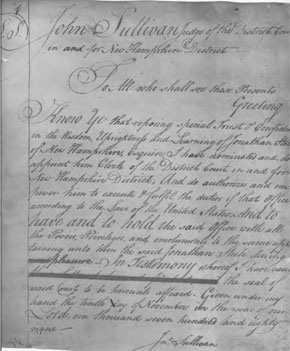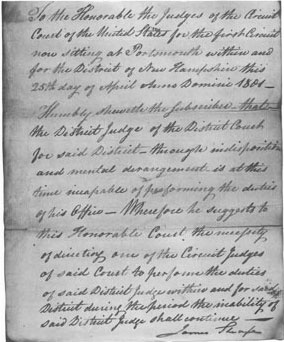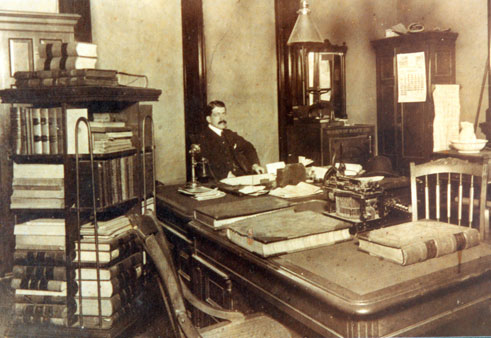8. The Clerk of Court
To be located: Inside the lobby of the Clerk’s OfficePrint to be exhibited: Norman Rockwell, Escape to Adventure (1922)
Other images of interest: Appointment of New Hampshire’s First Clerk (1789); Clerk’s request for assistance from Circuit Judges due to the “indisposition” and “derangement” of the District Judge (1801); A typical Clerk's office, (1903)
Every American court system, whether local, state, or federal, has a Clerk of Court or Court Executive. As the chief administrative officer of the court, it is the clerk’s job to see that the court runs smoothly. The clerk, with the assistance of his or her staff, schedules trials, processes paperwork (and now, electronic filings) going in and out of the court, informs lawyers of deadlines pertaining to court business, handles the court’s budget, and manages court personnel. Today, New Hampshire’s Federal District Court Clerk’s Office is staffed by twenty-five highly skilled professionals.*
The Judiciary Act of 1789 provided for the appointment of a federal clerk in each district and charged them with keeping all official court records and documents. In the early courts, the clerks spent most of their time on tedious and time-consuming work, including copying by hand into the docket books every document filed with the court, and minutes of all court proceedings, so that the judges could concentrate on the legal matters before them.
The twenty-one individuals who have served as Clerk of New Hampshire’s Federal District Court since the inception of the office in 1789 have ushered the Court through enormous growth in operation and complexity as required by ever-changing laws, procedures and technologies. Throughout its history, a well-run Clerk’s Office has been instrumental in supporting the federal court’s effective administration of justice.









